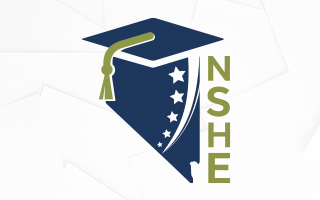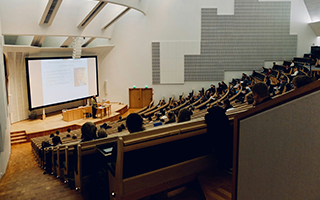NSHE colleges awarded $346,628 for STEM workforce training programs

Gov. Sandoval today announced that his Office of Science, Innovation and Technology has awarded more than $600,000 in STEM Workforce Challenge Grants to various training providers in the state, including three NSHE institutions that will receive a combined $346,628.
“I’m proud of our ongoing partnerships with Gov. Sandoval’s office and am excited for the opportunities these grants will provide to our students and to the economic development of our state,” said NSHE Chancellor Dan Klaich.
College of Southern Nevada (CSN) will partner with Switch SUPERNAP and the member companies of the Las Vegas Chapter of the Information Systems Audit and Control Association (ISACA) to create a new Cyber Security AAS degree and an advanced Certificate of Achievement, replacing CSN’s existing Network Security program. CSN’s $149,882 STEM Workforce Challenge Grant will fund the development of five new courses that better meet industry’s needs: Ethical Hacking, Physical Security, Incident Handling, Advanced Network Security, and Penetration Testing. As a result of the training, students will be prepared for the following six industry certifications: CompTIA A+, CompTIA Network+, CompTIA Security+, Cisco CCENT, EC-Council CEH, and ECIH. CSN’s grant will also fund the creation of a state-of-the-art classroom which will allow CSN to increase enrollment capacity by 30 percent.
Nevada State College (NSC) received a $54,746 STEM Workforce Challenge Grant to create a Horticultural Science Certificate program. Funding from the grant will be used to develop curriculum for the program, build a 25,000-square-foot outdoor garden farm, and build an indoor hydroponics garden for on-site training. Graduates will help grow Nevada’s sustainable desert and indoor farming industry, resulting in increased agricultural independence and decreased food importation. Curriculum for the two-semester program will include desert ecosystems, permaculture, hydroponic systems, and technology as a means to maximize production. Students will be exposed to the latest research on food production in arid climates and will also spend several hours per week engaged in faculty-mentored fieldwork in the garden. Graduates will be prepared for jobs such as garden, vegetable farm, or greenhouse managers; plant nursery workers; produce inspectors; hydroponics equipment management and sales; or garden consultants with landscape architecture agencies. The program will begin in fall 2016.
Western Nevada College (WNC) received a STEM Workforce Challenge Grant to modernize its welding certificate and degree programs to meet the needs of the region’s advanced manufacturers. The $142,000 grant will be used to purchase a robotic welder and associated curriculum. WNC will pay to upgrade its facilities to accommodate the new program. The new curriculum and tools will teach students metallurgy, to understand gases and interactions with metals, the mathematics of welding, and how to program the robotic welder. Those who complete the program will be able to program KUKA and FANUC robots. WNC will offer two tracks, a traditional track delivered in a 16 week semester and an accelerated track that meets 24 hours per week. Together, the two tracks will accommodate up to 40 students. The first cohort will start fall 2016.













